Subtotal: £17.42
Golden Mbuna Cichlid – Melanochromis Auratus – Malawi Golden Cichlid, Easy Care Freshwater Fish for Beginners, Enhancing Your Aquarium Setup with Vibrant Beauty and Compatibility
£7.99 Original price was: £7.99.£6.78Current price is: £6.78.
Welcome the stunning Golden Mbuna Cichlid, Melanochromis Auratus, into your aquarium. With its vibrant golden hues and unique patterns, this Lake Malawi cichlid is perfect for aquarists seeking beautiful inhabitants. Create an optimal setup and enjoy their graceful swimming behavior.
990 in stock
Species Introduction
The Golden Mbuna Cichlid, scientifically known as Melanochromis auratus, is a stunning freshwater fish native to the rocky shores of Lake Malawi in East Africa. This vibrant species is celebrated for its striking coloration, typically showcasing a brilliant yellow or golden hue that can vary in intensity based on environmental factors and individual genetics. The natural habitat of the Golden Mbuna Cichlid consists of rocky substrates where they can find shelter and establish territories. These fish thrive in the dynamic ecosystem of Lake Malawi, where they inhabit depths ranging from 5 to 20 meters, often in areas rich with algae and small invertebrates, which form a crucial part of their diet. Understanding their natural environment is essential for replicating their habitat in an aquarium setting, ensuring they feel secure and comfortable in their new home.
Care Requirements Dashboard
| Optimal Living Conditions | |
|---|---|
| Water Temperature | 24-27°C (75-81°F) |
| pH Level | 6.5-7.5 |
| Water Hardness | 4-12 dKH |
| Minimum Tank Size | 80L (20 gal) |
| Salinity | Freshwater |
| Care Level | Beginner Friendly |
Natural Behavior & Temperament
The Golden Mbuna Cichlid exhibits a lively and engaging temperament, making it a captivating addition to any aquarium. These fish are known for their territorial nature, particularly males, who will establish and defend their chosen areas within the tank. They are highly social and thrive in groups, but careful attention must be paid to their tank mates to prevent aggression. In a community setting, it is advisable to keep them with other cichlids of similar size and temperament to ensure harmony. Their swimming patterns are dynamic, often darting between rocks and hiding spots, showcasing their natural curiosity and playful behavior. Observing these fish in a well-structured environment can provide endless entertainment, as they interact with each other and explore their surroundings.
Tank Setup Guide
Creating an ideal environment for the Golden Mbuna Cichlid involves careful consideration of tank setup. A rocky aquascape is essential, as these fish naturally inhabit rocky areas in Lake Malawi. Incorporating a variety of rocks, caves, and crevices will provide hiding spots and territories for the cichlids, reducing stress and aggression. The substrate should consist of coarse gravel or sand to mimic their natural habitat, allowing for easy digging and foraging. Additionally, plants can be added, but it is important to choose hardy species that can withstand the cichlids’ behavior, as they may uproot delicate plants. Proper water circulation and filtration are also crucial, as cichlids produce a significant amount of waste. A high-quality aquarium filter will help maintain water quality and clarity, ensuring a healthy environment for your fish friends.
Water Quality Management
Maintaining optimal water quality is vital for the health of the Golden Mbuna Cichlid. Regular water changes of 20-30% every two weeks will help remove toxins and replenish essential minerals. The pH level should be regularly tested and kept within the range of 7.5 to 8.5, as fluctuations can lead to stress and health issues. Temperature stability is equally important; sudden changes can be detrimental to their well-being. A reliable aquarium heater should be used to maintain the desired temperature range of 75°F to 82°F. Additionally, monitoring water hardness is essential; aim for a hardness level between 10 to 20 dGH. Using a water conditioner will help neutralize harmful chemicals and ensure a safe environment for your aquatic companions.
Feeding & Nutrition
The Golden Mbuna Cichlid is primarily herbivorous, with a diet that consists of algae, plant matter, and small invertebrates. High-quality cichlid pellets or flakes should form the basis of their diet, supplemented with spirulina and other vegetable-based foods to promote optimal health and coloration. Feeding should occur once or twice daily, with portions that can be consumed within a few minutes to prevent overfeeding and maintain water quality. It is essential to observe their feeding behavior; if they are not consuming all the food, reduce the portion size accordingly. Additionally, offering occasional treats such as blanched vegetables or frozen foods can enhance their diet and provide variety. A well-balanced diet is crucial for their growth, vitality, and overall well-being.
Compatibility Guide
When selecting tank mates for the Golden Mbuna Cichlid, it is essential to consider their territorial nature and social dynamics. Suitable companions include other Lake Malawi cichlids, particularly those of similar size and temperament. Avoid pairing them with overly aggressive species, as this can lead to stress and conflict. Good tank mates include species like the Yellow Lab (Labidochromis caeruleus) and the Blue Cichlid (Cynotilapia afra). It is advisable to keep a ratio of one male to several females to reduce aggression and promote breeding behaviors. Additionally, providing ample hiding spots and territories will help mitigate territorial disputes. Monitoring interactions closely during the initial introduction phase is crucial to ensure a harmonious community tank.
Health & Wellness
Maintaining the health and wellness of the Golden Mbuna Cichlid requires vigilance and proactive care. Common health issues include ich, fin rot, and bloat, which can be managed through proper water quality and diet. Regularly inspecting your fish for signs of illness, such as changes in behavior, appetite, or physical appearance, is essential for early detection. Quarantining new arrivals for at least two weeks can help prevent the introduction of diseases into the established aquarium. In the event of an outbreak, prompt treatment with appropriate medications is crucial. Additionally, providing a stress-free environment with plenty of hiding spots and stable water conditions will significantly contribute to their overall health and longevity.
Breeding Information
Breeding Golden Mbuna Cichlids can be a rewarding experience for aquarists. These fish are mouthbrooders, meaning the female carries the fertilized eggs in her mouth until they hatch. To encourage breeding, it is essential to provide a suitable environment with plenty of hiding spots and territories. A ratio of one male to three or four females is recommended to reduce aggression during the breeding process. When ready to breed, the male will display vibrant colors and engage in courtship behaviors, which involve chasing and displaying. After spawning, the female will carry the eggs for approximately two to three weeks before releasing the fry. During this time, it is crucial to provide a safe environment for the fry, as they are vulnerable to predation. Feeding the fry with finely crushed flakes or specialized fry food will support their growth and development.
Acclimation Process
Acclimating your Golden Mbuna Cichlid to a new aquarium is a critical step in ensuring their health and well-being. Begin by floating the sealed bag containing the fish in the aquarium for about 15-20 minutes to equalize the temperature. After this, gradually introduce small amounts of tank water into the bag every 5 minutes to help the fish adjust to the water parameters. This process should take about an hour. Once acclimated, gently release the fish into the tank without adding the water from the bag. This method minimizes stress and reduces the risk of introducing harmful substances from the store’s water. Observing the fish closely during the first few days in their new environment will help you identify any signs of stress or discomfort.
Long-term Care
The long-term care of your Golden Mbuna Cichlid involves ongoing attention to their environment, diet, and health. These cichlids can live for 8 to 10 years with proper care, making them a long-term commitment for any aquarist. Regular water changes, consistent feeding schedules, and monitoring of water parameters are essential practices to ensure their longevity. Additionally, providing a varied diet will support their health and coloration as they mature. As they grow, their territorial behavior may intensify, so be prepared to adjust tank arrangements to accommodate their needs. Keeping a close eye on their interactions with tank mates will help you maintain a peaceful community environment.
Natural Habitat Recreation
To recreate the natural habitat of the Golden Mbuna Cichlid in your aquarium, focus on creating a rocky landscape that mimics the shores of Lake Malawi. Incorporate various sizes of rocks to form caves and hiding spots, allowing the cichlids to establish territories. The substrate should consist of coarse gravel or sand, which will facilitate natural behaviors such as digging and foraging. Additionally, consider adding hardy aquatic plants that can withstand the cichlids’ activity. While plants may not be a primary focus, they can enhance the aesthetic appeal of the aquarium and provide additional hiding spots. Ensuring proper water quality and filtration will further support the recreation of their natural environment, allowing your Golden Mbuna Cichlid to thrive.
Seasonal Care Adjustments
As seasons change, so too should your care routine for the Golden Mbuna Cichlid. During warmer months, ensure that the water temperature remains stable, as higher temperatures can lead to stress and health issues. It may be necessary to adjust the heater settings or use fans to maintain the desired temperature range. In contrast, during colder months, monitor the water temperature closely to prevent drops that could harm your fish friends. Additionally, consider adjusting the lighting schedule to mimic natural daylight hours, as this can influence their breeding behaviors and overall activity levels. Regularly checking water parameters throughout the year will help you make necessary adjustments to keep your cichlids healthy.
Expert Tips
For those looking to provide the best care for their Golden Mbuna Cichlid, consider implementing these expert tips. First, invest in a high-quality aquarium filter to maintain optimal water quality, as cichlids are sensitive to poor conditions. Regularly test water parameters and perform water changes to keep the environment stable. Second, observe their behavior closely; understanding their social dynamics will help you manage aggression and territorial disputes. Lastly, provide a varied diet that includes high-quality pellets, flakes, and occasional treats to support their health and coloration. By following these guidelines, you can create a thriving environment for your Golden Mbuna Cichlid and enjoy their vibrant presence in your aquarium.
Troubleshooting
If you encounter issues with your Golden Mbuna Cichlid, it is essential to address them promptly. Common problems include stress due to poor water quality, aggression from tank mates, or illness. If you notice signs of stress, such as hiding or erratic swimming, check water parameters immediately and perform a partial water change if necessary. If aggression is observed, consider rearranging the tank layout to disrupt established territories. In the case of illness, isolate affected fish and consult a veterinarian or aquatic specialist for appropriate treatment options. Early intervention is key to ensuring the health and well-being of your fish friends.
Scientific Background
The Golden Mbuna Cichlid, Melanochromis auratus, belongs to the Cichlidae family, which is known for its diverse and colorful species. This family is characterized by their complex social behaviors and varied reproductive strategies. The cichlids of Lake Malawi are particularly notable for their adaptive radiation, resulting in a wide range of sizes, shapes, and colors. Research on these fish has contributed significantly to our understanding of evolution and speciation. Conservation efforts are crucial to protect their natural habitats, as pollution and overfishing pose significant threats to their populations. By supporting sustainable practices and responsible aquarium keeping, aquarists can contribute to the preservation of these beautiful creatures.
Advanced Care Techniques
For experienced aquarists looking to elevate their care for the Golden Mbuna Cichlid, consider implementing advanced techniques. One approach is to establish a breeding colony, which requires careful selection of compatible pairs and proper tank conditions. Additionally, utilizing a sump filtration system can enhance water quality and provide additional space for beneficial bacteria. Implementing a routine of regular monitoring and adjustments to water parameters will help maintain a stable environment. Furthermore, consider creating a biotope aquarium that closely resembles their natural habitat, incorporating native plants and decor to enhance their well-being. By applying these advanced techniques, you can ensure a thriving and dynamic aquarium for your Golden Mbuna Cichlid.
Frequently Asked Questions
Q: What tank size is required for the Golden Mbuna Cichlid?
The Golden Mbuna Cichlid, or Melanochromis auratus, thrives best in a tank of at least 75 litres. This size provides adequate swimming space and helps maintain stable water parameters, which is crucial for their health. As a territorial species, they appreciate plenty of hiding spots and caves, so consider adding rock formations to the tank layout. Additionally, keeping these fish in a larger group can help distribute aggression and create a more harmonious environment. Always ensure that the tank is well-filtered and that you perform regular water changes to maintain optimal water quality.
✓ Expert Tip
Consider establishing a 100-litre tank if you wish to keep multiple Mbuna species, allowing for a more diverse and dynamic aquatic environment.
Q: What water parameters do Golden Mbuna Cichlids require?
Golden Mbuna Cichlids prefer alkaline water with a pH ranging from 7.8 to 8.6, mimicking their natural habitat in Lake Malawi. The water hardness should ideally be between 10 to 20 dGH, providing them with a comfortable environment. Maintaining a temperature between 24°C to 28°C is essential for their health and activity levels. Regular testing of water parameters will help prevent stress and illness, ensuring your fish remain vibrant and lively. Use quality water conditioners and perform weekly water changes to keep the environment stable.
✓ Expert Tip
Invest in a reliable water testing kit to monitor parameters accurately, which can greatly enhance your fish’s health and overall tank stability.
Q: How often should I feed Golden Mbuna Cichlids?
Golden Mbuna Cichlids should be fed 2-3 times a day, with small portions that they can consume within a few minutes. A varied diet is essential to ensure optimal health; consider high-quality pellets, flakes, and occasional treats such as blanched vegetables or frozen foods. This variety not only enhances their colouration but also supports their digestive health. Overfeeding can lead to water quality issues and health problems, so be vigilant about portion sizes and frequency.
✓ Expert Tip
Consider using a feeding schedule to maintain consistency, which can help in monitoring their dietary intake and overall health.
Q: What are the best tank mates for Golden Mbuna Cichlids?
Golden Mbuna Cichlids are known for their territorial nature, thus it is crucial to select tank mates carefully. Compatible species include other Mbuna Cichlids, such as Pseudotropheus and Labidochromis, as they share similar water requirements and temperaments. Avoid larger, aggressive fish or slow-moving species, as they may become targets for bullying. Ensure that the tank is spacious enough to provide territories and hiding spots, thus reducing aggression and stress among inhabitants.
✓ Expert Tip
Introduce new tank mates gradually and observe for any signs of aggression, adjusting the environment as necessary to promote harmony.
Q: How do I properly acclimatise Golden Mbuna Cichlids to my aquarium?
Acclimatising Golden Mbuna Cichlids is essential to reduce stress and ensure a smooth transition. Start by floating the sealed bag in your aquarium for about 15-20 minutes to equalise the temperature. After that, gradually introduce small amounts of your tank water into the bag every 5-10 minutes for approximately an hour. This process allows the fish to adjust to the new water parameters. Once acclimatised, gently transfer the fish into the tank using a net, avoiding the introduction of bag water to prevent contamination.
✓ Expert Tip
Consider using a drip acclimatisation method for optimal results, which allows for a gradual exchange of water between the bag and the aquarium.
Q: What are the signs of healthy Golden Mbuna Cichlids?
Healthy Golden Mbuna Cichlids exhibit vibrant colours, clear eyes, and active swimming behaviours. They should be responsive to their environment and exhibit normal feeding habits. Pay attention to their fins; they should be fully extended and free from tears or lesions. Additionally, observe their behaviour; a healthy fish displays curiosity and agility rather than hiding excessively or showing signs of distress. Regular monitoring can help catch any health issues early.
✓ Expert Tip
Keep a health journal to track any changes in behaviour or appearance, which can assist in identifying potential health concerns.
Q: How do I successfully breed Golden Mbuna Cichlids?
Breeding Golden Mbuna Cichlids can be rewarding but requires proper conditions. First, ensure a ratio of one male to several females to reduce aggression. Provide ample hiding spots and breeding caves within the tank. The female will lay eggs in a safe spot, which she will then mouthbrood until they hatch. Maintain stable water parameters and a slightly higher temperature during breeding to encourage spawning. Once the fry are free-swimming, they can be fed infusoria or finely crushed flake food.
✓ Expert Tip
Consider setting up a separate breeding tank to increase the survival rate of the fry and to reduce stress on the main tank inhabitants.
Q: What temperature should I maintain for Golden Mbuna Cichlids?
Golden Mbuna Cichlids thrive in a temperature range of 24°C to 28°C. Maintaining a stable temperature is critical for their health, as fluctuations can lead to stress and susceptibility to disease. Use a reliable aquarium heater and thermometer to ensure the water temperature remains consistent, and make adjustments gradually if needed. Regular monitoring is essential, especially during seasonal changes, to ensure your aquatic companions remain comfortable.
✓ Expert Tip
Consider using a programmable heater to maintain consistent temperatures, particularly during colder months.
Q: How long do Golden Mbuna Cichlids typically live in captivity?
In captivity, Golden Mbuna Cichlids can live for 8 to 12 years, provided they are given optimal care. Factors affecting their lifespan include water quality, diet, and overall tank conditions. Regular maintenance, including water changes and monitoring for signs of stress or illness, can contribute significantly to their longevity. Ensuring a balanced diet and a stress-free environment will also help them thrive for many years.
✓ Expert Tip
Keep a consistent care routine to enhance their quality of life and potentially extend their lifespan.
Q: What type of substrate is most suitable for Golden Mbuna Cichlids?
For Golden Mbuna Cichlids, a substrate that mimics their natural rocky habitat is ideal. Consider using coarse sand or gravel, as these materials allow for easy burrowing and digging, which is a natural behaviour for these fish. Additionally, ensure that the substrate is smooth to prevent injury to their delicate fins. Regular vacuuming of the substrate during water changes will help maintain water quality and remove uneaten food or waste.
✓ Expert Tip
Consider adding natural decorations like rocks and caves to encourage natural behaviours and provide hiding spots.
Q: What behavioural patterns should I expect from Golden Mbuna Cichlids?
Golden Mbuna Cichlids are known for their active, territorial behaviour. They often establish and defend territories within the tank, especially if they are breeding. Expect them to be curious, frequently exploring their environment and interacting with tank mates. They may display aggression towards each other, particularly males, so it is important to provide sufficient space and hiding spots to mitigate conflicts. Observing their behaviour can also help identify any signs of stress or illness.
✓ Expert Tip
Monitoring their behaviour regularly can help you respond promptly to any aggressive interactions or signs of stress.
Q: How can I prevent common diseases in Golden Mbuna Cichlids?
Preventing diseases in Golden Mbuna Cichlids involves maintaining high water quality and a stress-free environment. Regular water changes, proper filtration, and monitoring water parameters are crucial. Quarantine new arrivals before introducing them to the main tank to prevent the spread of illness. Additionally, ensure a balanced diet rich in nutrients to boost their immune system. Observing for any signs of disease, such as changes in behaviour or appearance, can lead to early intervention and treatment.
✓ Expert Tip
Consider keeping a first-aid kit for aquatic life on hand, including medications for common ailments.
Q: What lighting conditions do Golden Mbuna Cichlids prefer?
Golden Mbuna Cichlids thrive under moderate lighting conditions. They appreciate a well-lit tank, which helps enhance their vibrant colours, but it is also important to provide shaded areas created by rocks and plants. This balance allows them to retreat when they feel stressed or threatened. LED lighting is an excellent option, offering energy efficiency and adjustable intensity. Ensure that the light cycle mimics natural daylight conditions, typically around 10-12 hours of light per day.
✓ Expert Tip
Using a timer for your lighting system can help maintain a consistent light cycle, which is beneficial for both the fish and any live plants in the tank.
Q: How do I recognise stress in Golden Mbuna Cichlids?
Recognising stress in Golden Mbuna Cichlids is vital for their health. Signs of stress may include excessive hiding, loss of appetite, and unusual swimming patterns, such as darting or hanging near the surface. Additionally, observe for changes in colour; stressed fish may appear dull or washed out. Aggressive behaviour towards tank mates can also indicate discomfort. If you notice these signs, assess water quality, tank conditions, and compatibility with other species to identify and address the underlying issues promptly.
✓ Expert Tip
Maintaining a stress-free environment through proper tank setup and regular monitoring can significantly enhance the wellbeing of your fish friends.
Q: What natural habitat conditions should I replicate for Golden Mbuna Cichlids?
To provide optimal care for Golden Mbuna Cichlids, replicate their natural habitat found in Lake Malawi. This includes creating a rocky environment with plenty of caves and crevices for hiding and breeding. Use substrates such as sand or gravel, and ensure the water is alkaline with a pH between 7.8 and 8.6. Maintaining a stable temperature and providing a well-filtered environment will also enhance their health. Lastly, consider adding hardy plants that can withstand the conditions while providing additional cover.
✓ Expert Tip
Incorporating natural elements not only helps mimic their habitat but also promotes natural behaviours, enriching their environment.


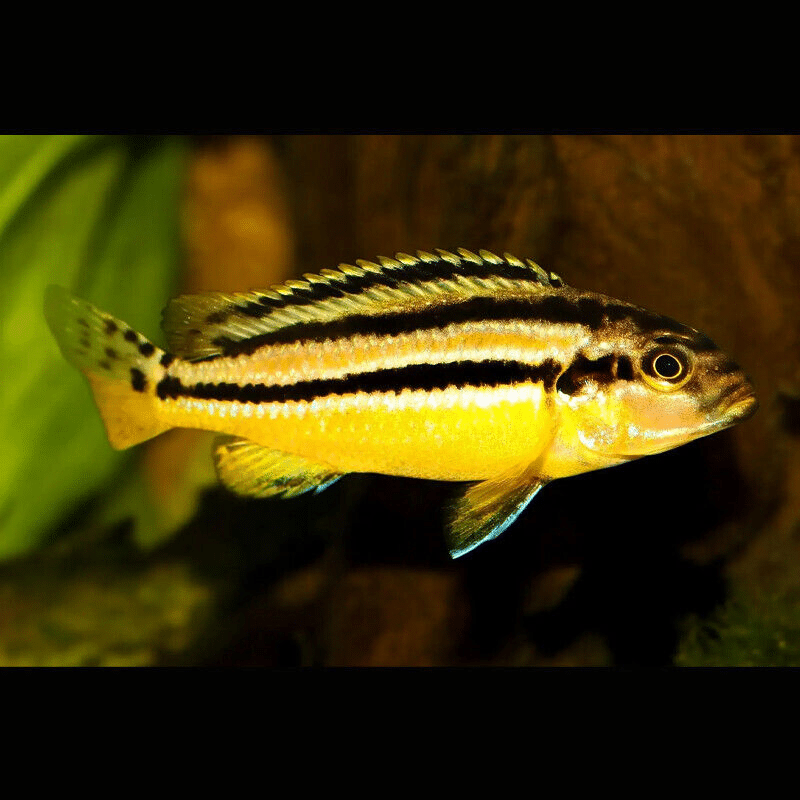

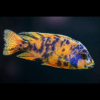


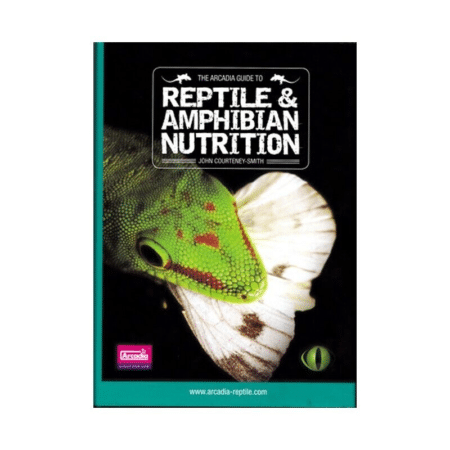



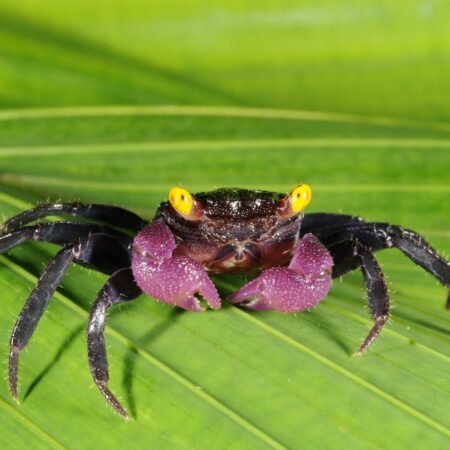
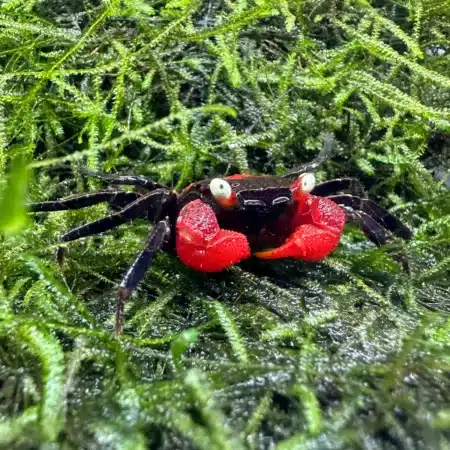
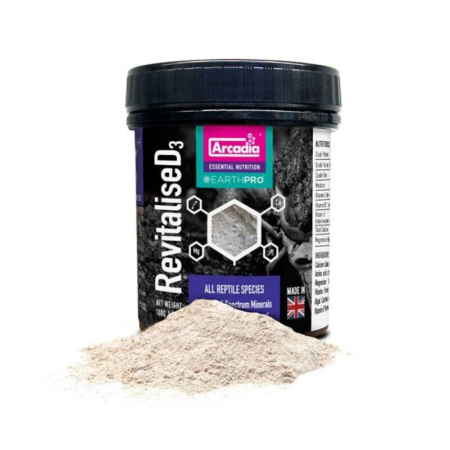
Lisa Henderson (verified owner) –
I recently added the Golden Mbuna Cichlid (Melanochromis Auratus) to my aquarium, and I couldn’t be happier! After just two weeks, their vibrant colors have truly brought my tank to life. These fish are not only stunning but also have such engaging personalities. I love watching them interact with each other and their environment. I’ve kept various aquarium fish over the years, but the energy and activity level of these cichlids is unmatched.
I appreciate how they thrive in a well-maintained aquarium setup; I have a tank with plenty of hiding spots and rocky structures, which they adore. Compared to other cichlids I’ve owned, the Melanochromis Auratus are incredibly resilient and have adjusted beautifully to my water parameters.
While they can be a bit territorial, providing ample space and structure has minimized any squabbles. I highly recommend these fish for those who have some experience with aquarium maintenance, as their needs are slightly more specific than simpler species. Overall, I couldn’t recommend the Golden Mbuna Cichlid enough for anyone looking to add lively and colorful dynamic to their tank!